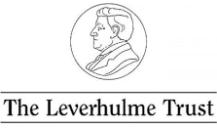Rethinking Civil Society: History, Theory, Critique
Timothy Stanton | Leverhulme Trust Research Leadership Award

Today talk of civil society is everywhere—but what does it mean? One exasperated reviewer complains that a seminal discussion defines ‘civil society’ in at least 25 different ways, perhaps forgetting Nietzsche’s dictum that only that which has no history can be defined. Civil society is an idea with history. It shapes thought and action in politics within and between states across the world, all the while transmitting assumptions about values and institutions that are products and residues of that history. It carries its history around in these assumptions, which are buried within, but radiate out of, the language we use when thinking and speaking about civil society. It is an idea that has crossed continents, spreading to and shaping the belief systems of political elites and intelligentsias across the globe. It has left its mark everywhere, insinuating itself into the consciousnesses of people the world over, private citizens as much as professional political thinkers and actors, artists and commentators as much as philosophers. To understand all that it means, and all that it promises, we need to understand it anew.
Embracing political theory, intellectual, cultural, diplomatic, and art history, literature and political philology, the study of texts and para-texts, and the history of political thought from the sixteenth century to the present day, this 5-year research programme aims to rethink civil society historically and philosophically. A research team of 4 PhD students and 4 Early Career Fellows based at York will be joined by three Senior Research Fellows based at the Lichtenberg Kolleg, the Institute of Advanced Study at the University of Göttingen. The research programme is funded by the Leverhulme Trust and the Lichtenberg Kolleg.

